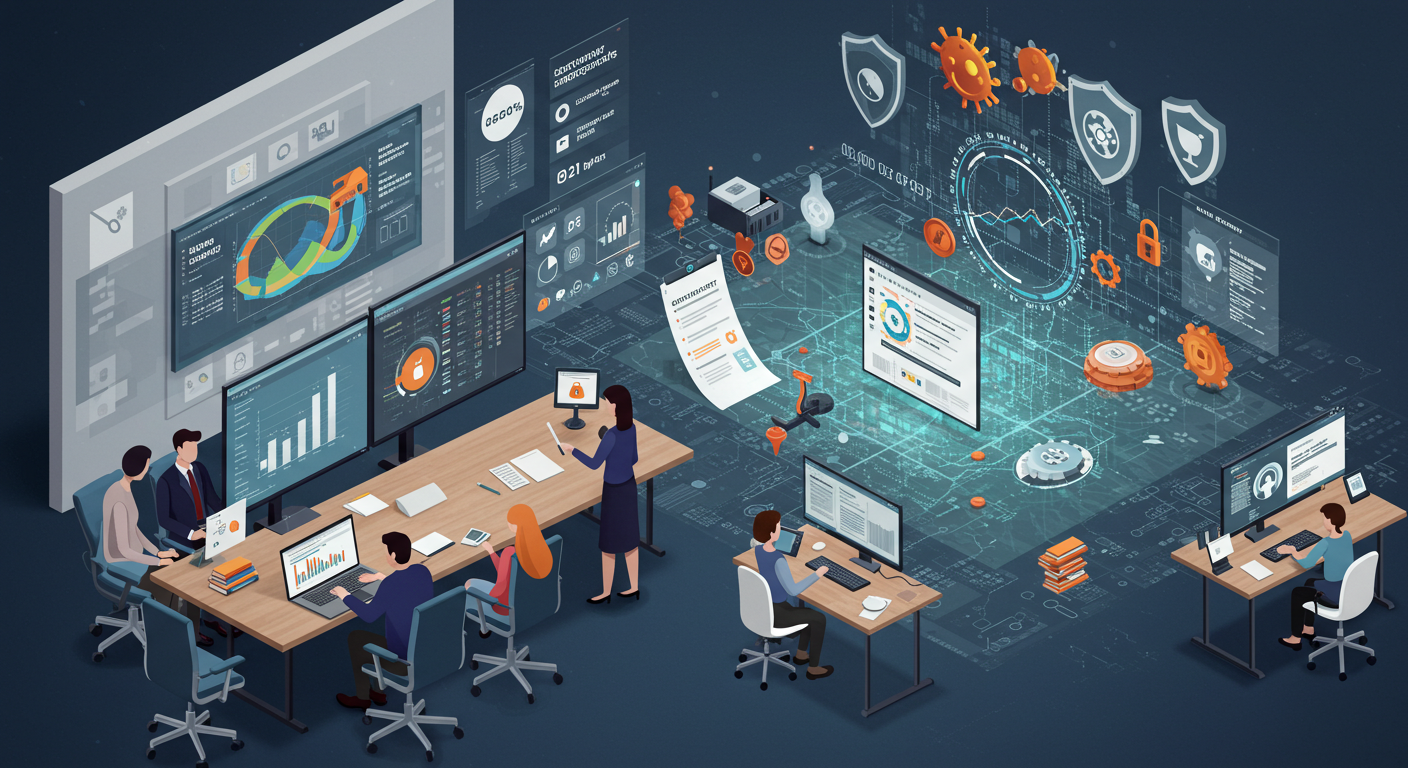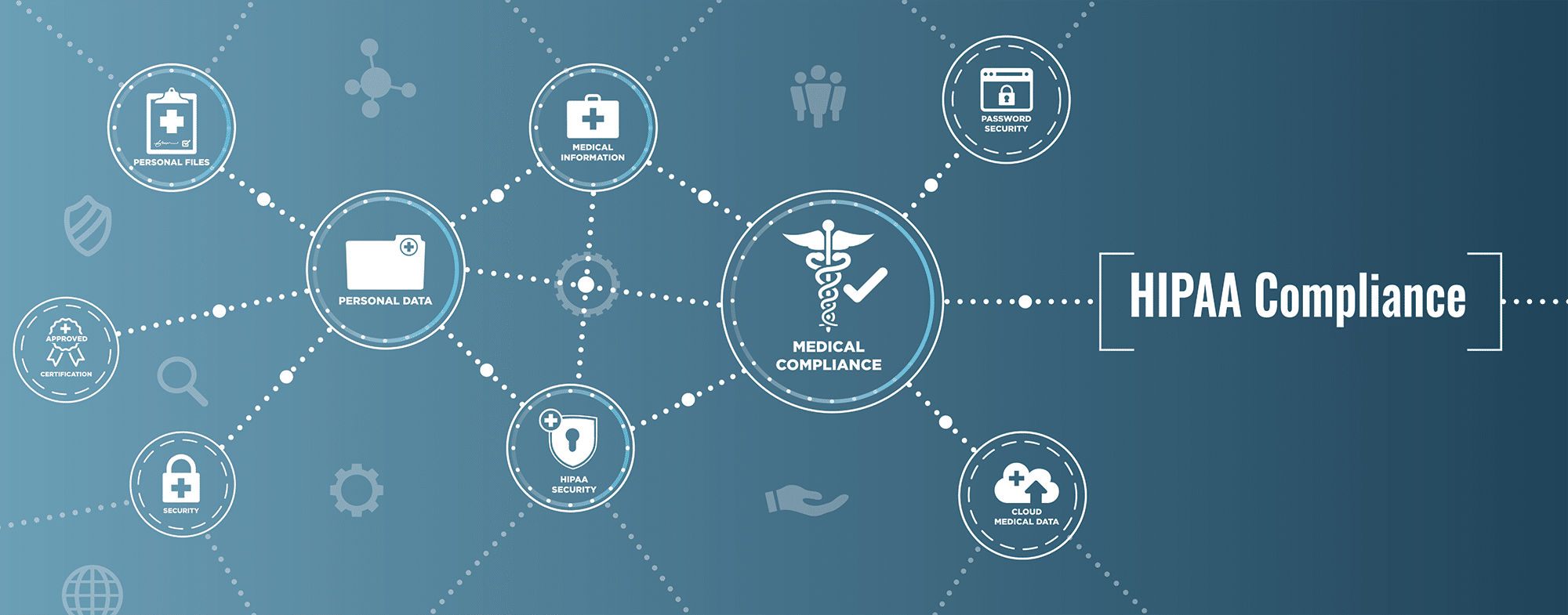In today’s world, cybersecurity is no longer just an issue for technology companies or financial institutions. Healthcare organizations also need to prioritize cybersecurity as patient data is highly sensitive and valuable to cybercriminals. As more healthcare providers adopt digital technologies and store sensitive data in electronic health records (EHRs), the risk of cyberattacks on healthcare organizations is increasing.
In this article, we will discuss healthcare cybersecurity services and their importance for healthcare organizations.
What are Healthcare Cybersecurity Services?
Healthcare cybersecurity services refer to a range of tools, technologies, and practices that are designed to protect healthcare organizations from cyber threats.
These services include but are not limited to:
- Vulnerability assessment and penetration testing
- Security information and event management (SIEM)
- Firewall and intrusion detection and prevention systems (IDPS)
- Data encryption and backup
- Identity and access management (IAM)
- Network segmentation
- Cybersecurity awareness and training programs
- Incident response and disaster recovery
In this section, we will look at each of these different services and explain what they are and how they can help protect healthcare organizations.
Vulnerability Assessment and Penetration Testing
Vulnerability assessment and penetration testing are important healthcare cybersecurity services that can help healthcare organizations identify and remediate security weaknesses. Vulnerability assessment involves the identification of weaknesses in the network, application, or system, while penetration testing involves the simulation of a real-world attack to assess the effectiveness of security controls.
Vulnerability assessments and penetration testing are critical in identifying security risks in a healthcare organization’s infrastructure and applications. Once vulnerabilities are identified, the healthcare organization can take steps to mitigate them, reducing the risk of a cyber-attack. These services can also help healthcare organizations meet compliance requirements for HIPAA and other regulations.
Security Information and Event Management (SIEM)
Security Information and Event Management (SIEM) is another important healthcare cybersecurity service that can help healthcare organizations detect and respond to security incidents. SIEM systems aggregate and analyze security data from various sources, such as firewalls, intrusion detection systems, and antivirus software, to identify security threats and potential security incidents.
SIEM solutions are particularly useful in healthcare organizations, where the data stored is particularly sensitive. The use of SIEM systems enables healthcare organizations to have a centralized view of their security posture and detect security incidents in real-time, allowing for a faster response to mitigate potential damage.
Firewall and Intrusion Detection and Prevention Systems
Firewall and Intrusion Detection and Prevention Systems (IDPS) are essential cybersecurity services for healthcare organizations. A firewall is a network security system that monitors and controls incoming and outgoing network traffic based on predetermined security rules. Intrusion Detection and Prevention Systems (IDPS) are designed to detect and prevent unauthorized access to a healthcare organization’s network.
These systems are important in healthcare organizations as they help to prevent unauthorized access to patient data and protect the network from external threats. By using these systems, healthcare organizations can better protect their patient data from cyber-attacks, which can have serious financial and reputational consequences.
Data Encryption and Backup
Data encryption and backup are also critical healthcare cybersecurity services that healthcare organizations should consider. Data encryption is the process of converting sensitive information into a code to prevent unauthorized access. Backup, on the other hand, involves creating copies of important data in case of data loss or corruption.
By encrypting sensitive data, healthcare organizations can ensure that even if an attacker gains access to the data, they will not be able to read it. Backup is also critical in ensuring the availability of data in case of data loss or corruption. By creating backups of important data, healthcare organizations can quickly restore data and minimize the impact of a cyber-attack.
Identity and Access Management (IAM)
Identity and Access Management (IAM) is an important healthcare cybersecurity service that involves the management of user identities and their access to sensitive data. IAM solutions provide healthcare organizations with a centralized platform for managing user access to systems, applications, and data.
IAM solutions are essential for healthcare organizations as they can help prevent unauthorized access to patient data. By ensuring that only authorized users have access to sensitive data, healthcare organizations can reduce the risk of a data breach and protect patient confidentiality.
Network Segmentation
Network segmentation is the practice of dividing a computer network into smaller subnetworks, each with its own set of security policies and controls. This helps to reduce the potential attack surface and limit the impact of a security incident. In healthcare organizations, network segmentation can be used to separate patient data from other types of data, reducing the risk of data breaches.
By implementing network segmentation, healthcare organizations can reduce the risk of lateral movement by hackers within their network, limiting the scope of a security incident. Network segmentation can also make it easier to enforce security policies and controls, as these policies can be tailored to each subnetwork.
Cybersecurity Awareness and Training Programs
Cybersecurity awareness and training programs are essential healthcare cybersecurity services that help to educate employees about cybersecurity best practices. These programs provide employees with the knowledge and skills necessary to identify and respond to security threats, such as phishing attacks and ransomware.
Cybersecurity awareness and training programs are particularly important in healthcare organizations, where employees handle sensitive data daily. By providing employees with regular cybersecurity training and education, healthcare organizations can reduce the risk of human error, which is a leading cause of security incidents. This training can help employees identify and respond to threats, as well as provide guidance on how to handle sensitive data securely.
Incident Response and Disaster Recovery
Incident response and disaster recovery are critical healthcare cybersecurity services that help healthcare organizations respond to security incidents and recover from them. Incident response involves the identification, containment, and eradication of security incidents, while disaster recovery involves restoring systems and data after a security incident. These services are critical in ensuring the continuity of healthcare services and minimizing the impact of a security incident.
An effective incident response and disaster recovery plan can help healthcare organizations respond quickly to security incidents, limiting their impact on patient care and ensuring the availability of critical systems and data. These plans should be regularly tested and updated to ensure that they remain effective and up-to-date with the latest cybersecurity threats.
Why are Healthcare Cybersecurity Services Important?
In recent years, the healthcare industry has become increasingly reliant on digital technology to manage patient data, monitor medical devices, and streamline operations. While these advancements have improved efficiency and patient care, they have also increased the risk of cyber threats and data breaches. Healthcare organizations are prime targets for cyberattacks due to the valuable patient data they hold, making it essential for them to prioritize cybersecurity measures.
Healthcare cybersecurity services are critical for protecting patient data, maintaining compliance with regulations, ensuring business continuity, and protecting medical devices. Additionally, healthcare cybersecurity services can help protect the reputation and trust of the organization by demonstrating their commitment to cybersecurity best practices.
In this section, we will explore each of these reasons and show why healthcare cybersecurity services are more important than ever before.
- Protect Patient Data
Healthcare organizations store vast amounts of sensitive patient data, including medical records, personal information, and financial data. Cyberattacks on healthcare organizations can result in the theft or unauthorized access to this data, leading to identity theft, financial fraud, and other serious consequences.
- Compliance with Regulations
Healthcare organizations are subject to various regulations, including the Health Insurance Portability and Accountability Act (HIPAA) and the General Data Protection Regulation (GDPR). Compliance with these regulations requires healthcare organizations to implement appropriate cybersecurity measures to protect patient data.
- Maintain Business Continuity
Cyberattacks can disrupt healthcare operations, leading to delayed or cancelled appointments, compromised patient care, and financial losses. Healthcare cybersecurity services can help prevent such disruptions by providing early detection and response to cyber threats.
- Protect Medical Devices
Medical devices such as pacemakers, insulin pumps, and other connected devices are becoming more common in healthcare settings. These devices can be vulnerable to cyberattacks, which can compromise patient safety. Healthcare cybersecurity services can help protect these devices by securing their network connections and ensuring that they are running the latest software updates.
- Protect Reputation and Trust
By implementing healthcare cybersecurity services, organizations can demonstrate their commitment to protecting patient data and maintaining the highest standards of security. This can help to build trust with patients and stakeholders, which is critical to the long-term success of the organization.
Conclusion
As healthcare organizations become more reliant on digital technologies, the need for cybersecurity services is becoming increasingly important. Healthcare cybersecurity services can help protect patient data, maintain compliance with regulations, maintain business continuity, and protect medical devices. It is crucial for healthcare organizations to prioritize cybersecurity and invest in healthcare cybersecurity services to protect themselves and their patients from increasingly sophisticated cyber threats.







